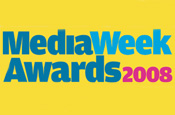- Get some distance - People who worked on the campaign can draft the facts, but leave it to the best sales or marketing person in the office to write it up.
- Force yourself to do the "lift test" - Imagine you've got to sell your initiative in the short time it takes to go from reception to the 5th floor - you should be able to sum it up in one sentence.
- Be clear and concise - Think about where you started from, the problem, the solution and the results. Leave out extraneous details. Remember, judges have to read pages and pages of entries.
- Don't over-claim - It's a set of serious heavyweight judges with lots of experience. If you claim it's a "media first", they'll know if it's been done before.
- Acknowledge other people's input - You never know which of your partners might be sitting on the judging panel wondering why their own team's crucial input didn't merit a mention.
- Prove effectiveness - It may be a great idea, but how did it actually benefit your client's business? Numbers speak volumes - as does a favourable client testimonial.
- Avoid jargon - Clients can't be expected to understand your in-house shorthand and neither can judges. If you can't resist, include an addendum explaining what it all means.
- Don't be lazy - While it's perfectly acceptable to enter the same campaign in more than one category, there are different categories for a reason. The judges are looking for different qualities, so adjust your entry accordingly.
- Get someone to proof-read it - There's nothing like spelling mistakes and typos to niggle tired judges looking for a deciding factor.
- Check and check again - Submitting an entry to more than one magazine's awards is just about forgivable - forgetting to change the name of the magazine on the top is not.
Read more on the Media Week Awards


